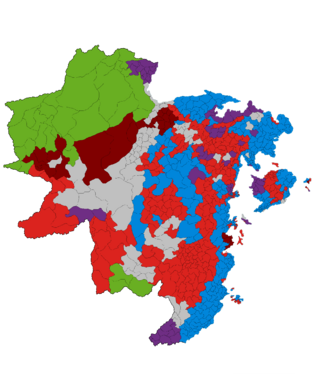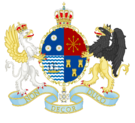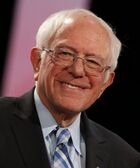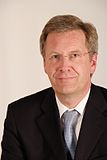Aquitaynian general election, 2017
This article is incomplete because it is pending further input from participants, or it is a work-in-progress by one author. Please comment on this article's talk page to share your input, comments and questions. Note: To contribute to this article, you may need to seek help from the author(s) of this page. |
| |||||||||||||||||||||||||||||||||||||||||||||||||||||||||||||||||||||||||||||||||||||||||||||
786 in the Commons (394 for a majority) | |||||||||||||||||||||||||||||||||||||||||||||||||||||||||||||||||||||||||||||||||||||||||||||
|---|---|---|---|---|---|---|---|---|---|---|---|---|---|---|---|---|---|---|---|---|---|---|---|---|---|---|---|---|---|---|---|---|---|---|---|---|---|---|---|---|---|---|---|---|---|---|---|---|---|---|---|---|---|---|---|---|---|---|---|---|---|---|---|---|---|---|---|---|---|---|---|---|---|---|---|---|---|---|---|---|---|---|---|---|---|---|---|---|---|---|---|---|---|
| Opinion polls | |||||||||||||||||||||||||||||||||||||||||||||||||||||||||||||||||||||||||||||||||||||||||||||
| Turnout | 64.1% ( | ||||||||||||||||||||||||||||||||||||||||||||||||||||||||||||||||||||||||||||||||||||||||||||
| |||||||||||||||||||||||||||||||||||||||||||||||||||||||||||||||||||||||||||||||||||||||||||||
 Colors denote the winning party, as shown in the main table of results. | |||||||||||||||||||||||||||||||||||||||||||||||||||||||||||||||||||||||||||||||||||||||||||||
| |||||||||||||||||||||||||||||||||||||||||||||||||||||||||||||||||||||||||||||||||||||||||||||
| This article is part of a series on |
| Politics of Aquitayne |
|---|
 |
The Aquitaynian general election of 2017 took place on Saturday 8 December. Each of the 786 constituencies elected one Member of Parliament (MP) to the House of Commons. Under the guidelines set forth in the constitution, the election was held on time.
The Royalist Party, which had governed as a senior coalition partner from 2014 was defending a working majority of 17 seats against the People's Party, the official opposition led by Kirk Macklin. The Royalist Party viewed the election as the best opportunity to secure its hold on a majority in parliament and continue its agenda into 2020.
Opinion polls had shown consistent leads for the Royalist Party over the People's Party. However, the polls were much closer than in previous elections, with widespread national discontent with the Royalists' handling of various situations under the Zaeir administration. Consequently, polling for non-traditional party platforms like the Republican Party was much higher than in past elections. In final results that surprised many, the Royalist Party came away with a net loss of 17 seats with 37.9% of the vote, a 6.7% decrease from the last election - a huge indicator as to large discontent nationwide about Royalist policies. The People's Party came away with a larger loss than the Royalists, losing a total of 19 seats with 35.49% of the vote, a 2% decrease from the last election. The Republicans came away with a huge win, gaining 10 seats with 9.28% of the vote, its largest share to date. The ISP came away with a 2 seat increase with 9.4% of the vote, its largest share in over three decades. The Environmentalists lost 7 seats with 3.94% of the vote, its biggest loss since 2006.
The most surprising result out of the entire election, however, was the success of the Nation First movement in securing seats in parliament. Opinion polling had estimated Nation First to gain between five to ten seats in parliament, but actual voter turnout for the party shattered projections. With 3.94% of the vote, Nation First secured 31 seats in parliament, matching the long-standing Environmentalist party for seats. The right-wing organization was not given much credence during the campaigns, which may have played into its success.
Electoral system
Each parliamentary constituency of Aquitayne elects one MP to the House of Commons using the STV system. If one party obtains a majority of seats, then that party is entitled to form the Government, with its leader as Prime Minister. If the election results in no single party having a majority, then there is a hung parliament. In this case, the options for forming the Government are either a minority government or a coalition.
Voting eligibility
To vote in the general election, one had to be:
- a registered voter;
- aged 18 or over on polling day;
- be an Aquitaynian citizen with single or dual citizenship;
- a resident at an address in Aquitayne or an Aquitaynian territory, or an Aquitaynian citizen living abroad who has been registered to vote in Aquitayne within the past 15 years and;
- not legally excluded from voting (felony convictions may carry a sentence of revocation of the right to vote for some convicted criminals, for example, or any criminals at large)
Individuals had to be registered to vote by midnight 14 days before voting day (8 December). A person who has two homes (such as a university student with a term-time address and lives at home during holidays) may be registered to vote at both addresses, provided they are in separate districts, and can only vote in one constituency per election.
In the lead-up to this election, it was estimated that over 2 million Aquitaynians between 18 and 35 registered to vote before the deadline, and over 200,000 were under the age of 22.
Date and cost of election
Timetable
| 18 June | Prime Minister James Zaeir formally announces election date |
| 19 June | MPs voted to dissolve Parliament |
| 23 June | Royal Proclamation under Article II of the Constitution issued to formally dissolve parliament |
| 23 June | Royal proclamation was issued summoning a new Parliament |
| 24 July | Deadline (5pm) for the delivery of candidate nomination papers |
| 24 July | Deadline (7pm) for the publication of the Statement of Nominated Persons |
| 1 August | Earliest date where polling officers could issue polling cards to voting locations |
| 1 September | Party primaries are held if more than one candidate for a single party files candidacy papers within the deadline in the same district as another candidate |
| 20 September | Advertising gag closes |
| 15 November | Deadline for proxy votes to be submitted in the mail (verified by postal stamp) |
| 24 November | Deadline (5pm) for the public to register to vote |
| 8 December | Voting day (polling stations opened at 8am and closed at 9pm or once voters present in a queue at or outside the polling station at 9pm had cast their vote). Counting of votes started no later than 2am on 9 December. |
| 18 December | Parliament re-assembled |
| 25 December | State Opening of Parliament |
Cost
The cost to the taxpayer of organizing the election was $160 million NSD - slightly less than the previous election in 2014, which cost taxpayers $171 million NSD.
Parties and candidates
Unlike in other countries throughout the world, independent candidates are not authorized to run for parliament. They may, however, run in local elections. This guideline is due to the Parliamentary Standardization Act of 1894, which states that any candidate running for office in parliament must be registered with a traditional political party. Such a party can be registered with the government after 5,000 membership signatures are collected, a party head elected from the signers, and a party office established.
The leader of the party commanding a majority of support in the House of Commons is the person who is called on by the monarch to form a government as Prime Minister, while the leader of the largest party not in government becomes the Leader of the Opposition. Other parties also form shadow ministerial teams, which follow the current Prime Minister and create policy decisions based on the party's values.
The Royalist Party and the People's Party have been the two biggest parties since the creation of the modern state of Aquitayne in 1741, and have supplied all Prime Ministers since 1936. The Royalist Party changed their leader just before the 2017 election during the May Royalist Convention, where the current Prime Minister, Richard Larrow, announced and secured his place as the head of the party. The People's Party changed their leader after the disappointing results of the 2017 election, ousting longtime chairman Kirk Macklin and replacing him with a younger candidate, Nikolas Renaldt. The leadership of the Environmentalist coalition remained in tact, and the leadership of the Republicans also changed hands just before the election, being handed over to a very young and charismatic Simon Elswith. Nation First also secured its place as a legitimate force in parliament for the next three years, with it being the first new political party in parliament with over 10 seats in a decade. Some of the smaller registered parties chose not to seriously run any candidates during this cycle, as they focused on local elections in 2018.
Candidates
4,102 candidates stood for election, up from 4,076 in the previous general election in 2014. The Royalist Party held candidates in 762 districts, the People's Party in 769, the Republicans in 489 districts (up from 423), the ISP in 523 (down from 612), and the Environmentalists in 392 districts (up from 345). Nation First had 482 registered candidates in this election cycle, almost four times the amount predicted by political analysts at the time. There were a total of 782 contested districts during the election, with only four districts reporting a single candidate or only multiple candidates from the same party running.
Party selection process
As is typical of general election cycles, the national franchise of each political party will create a selection process for finding potential candidates to run that align well with the party platform and who have an excellent chance of winning a seat in parliament.
For the Royalist Party, local affiliate branches were tasked with finding members of their community whom they believed would stand the best chance of winning an election and who also would represent the party values. The national branch was responsible for handling vetting and receiving of candidate profiles, but the Royalist Party has kept its grassroots method for finding candidates since the early 1950's. Standing members of parliament who wished to run again were given preference over any potential candidate running against them under the Royalist Party name, which often lead to primaries being held locally to determine who stood a better chance of beating a contender. In the 2017 Royalist Party primaries, only 24 incumbent candidates lost the primary to a newcomer.
The People's Party, after the dissolution of parliament, immediately required sitting MPs to state their intention to stand, and automatically re-selected those that wanted to run again. The party then advertised for party members to reach out and announce interest a few weeks before the filing deadline to ensure background checks and vetting could be completed.
Nation First almost selectively chose candidates who had attended the First Nation First Congress in June of 2016, and pre-selected those members who chose to run. Otherwise, it allowed local offices to reach out to potential candidates and allow the national office to conduct vetting procedures. Nation First took advantage of discontent in rural and urban areas where jobs had been lost to seize on weak showings by the Royalists and People's Party candidates.
Campaign
Background
Issues
Security
NHS
Immigration reform
Interventionism
Party campaigns
Royalists
People's Party
Republicans
Independent Socialists
Nation First
Environmentalists
Television debates
As is standard with all Aquitaynian general and snap elections, a series of debates were set up with all of the major parties in the lead-up to voting day after the advertising gag closed on 20 September. In a controversial decision made by the Atreum Terrae in 1992, they ruled not only that advertising gags did not infringe on the freedom of speech granted by Section IV of Article VI in the Aquitaynian constitution, and that debates did constitute advertisement. Thus, any televised debate must occur after the advertising gag closed.
During this election cycle, as is traditional for most elections, the Aquitaynian News Network, Aquitayne's largest private news corporation, and the National Broadcasting service hosted the majority of debates throughout the country. The first debate was scheduled for just two days after the advertising gag closed, on 22 September, with the four major parties being invited. Notably, Nation First was not invited to the first debate, as there were still doubts in the news media that they were a serious contender.
Public Access hosted the second debate of the cycle, with all parties being invited, but the Royalist delegation being absent due to Richard Larrow being engaged at a party fundraiser. This debate was notable as it pitted traditional choices against a newcomer, Nation First, who's Evelyn Varys performed better than analysts had predicted. The right-wing nationalist group lauded her success at shutting down People's Party leader Nikolas Renaldt multiple times throughout the night.
As is customary, ANN hosted a series of specified debates towards the end of the debate cycle, highlighting key issues in the upcoming vote. The first debate, named The Third View, ignored the major Royalist and People's Party candidates, and focused solely on third-party options. The debate was highly viewed, and is considered a direct reason why both the Royalist Party and People's Party lost seats during this election.
The second specified debate was the opposite of the first, a town hall meeting with the leadership from the Royalists and People's Party. The debate focused on domestic issues surrounding healthcare, gun reform, taxes, and economic health. The debate was toned down compared to the others, and it was widely acclaimed as to how both candidates treated one another while in the spotlight.
The third specified debate was entitled David v. Goliath, and focused on the Royalist Party debating third-party options. The debate quickly spiraled into the third-party candidates lamenting at Royalist policies over the last six years, and Richard Larrow spent the majority of the night on the defense. The result was not what many had expected, though, with polls indicating that people favored Larrow more than they had before the debate since they felt he had been ambushed.
The second to final debate focused solely on foreign policy, and forced Richard Larrow to announce major policy shifts in Royalist planning to combat the almost unified assault he was facing from the other candidates on-stage. Larrow spent the night defending his predecessors actions in Insula Fera and the Western Tundra, while the Republican Party candidate, Simon Elswith, attacked Larrow for his participation in gathering the votes that sent the nation to war.
The final debate was broadcast by the National Broadcasting Service, and focused on general topics regarding the election.
Politicians not standing
Members of Parliament not standing for re-election
| MP | Seat | First elected | Party | Date announced | |
|---|---|---|---|---|---|
| Edward Davies | 691st District | 1987 | Royalists | 24 June 2017 | |
| Michael Chavez | 421st District | 2008 | People's Party | 19 June 2017 | |
| Nancy Danielsson | 133rd District | 2010 | People's Party | 18 July 2017 | |
| Victor Hermansen | 405th District | 1984 | Republicans | 19 June 2017 | |
| Vladimir Kristiansen | 288th District | 1996 | ISP | 24 June 2017 | |
| Yuusou Shintani | 263rd District | 1999 | Royalists | 25 June 2017 | |
Opinion polling and seat projections
In the 2017 general election, polling companies underestimated the Royalist Party vote and overestimated the People's Party vote, and largely ignored the rapid popularity of Nation First, thus failing to predict the election results accurately.

Predictions three weeks before the vote
The single transferable vote system used in Aquitaynian elections means that the number of seats won is directly related to vote share. Thus, election predictions can be reliably made prior to voting day in most traditional districts. The table below highlights predictions from three weeks away from voting day from four of the major political predictors.
| Parties | Wright & Apollo as of 17 November 2017 |
Electoral Monitors as of 15 November 2017 |
ANN Predictions as of 21 November 2017 |
National Polling Center as of 16 November 2017 | |
|---|---|---|---|---|---|
| People's Party | 395 | 410 | 394 | 400 | |
| Royalists | 258 | 268 | 247 | 284 | |
| Republicans | 73 | 84 | 62 | 55 | |
| ISP | 100 | 74 | 82 | 66 | |
| Nation First | 25 | 15 | 11 | 6 | |
| Environmentalists | 34 | 22 | 15 | 11 | |
| Overall result (probability) | People's Party majority (67%) |
People's Party majority (78%) |
People's Party majority (62%) |
People's Party majority (54%) | |
Predictions two weeks before the vote
| Parties | Wright & Apollo as of 28 November 2017 |
Electoral Monitors as of 29 November 2017 |
ANN Predictions as of 27 November 2017 |
National Polling Center as of 27 November 2017 |
Telora Tribune as of 24 November 2017 | |
|---|---|---|---|---|---|---|
| People's Party | 395 | 402 | 405 | 399 | 400 | |
| Royalists | 270 | 241 | 205 | 188 | 256 | |
| Republicans | 81 | 90 | 47 | 59 | 70 | |
| ISP | 102 | 84 | 73 | 77 | 81 | |
| Nation First | 30 | 29 | 25 | 18 | 33 | |
| Environmentalists | 37 | 31 | 24 | 26 | 19 | |
| Overall result (probability) | People's Party majority (73%) |
People's Party majority (81%) |
People's Party majority |
People's Party majority |
People's Party majority | |
Predictions one week before the vote
| Parties | Wright & Apollo as of 1 December 2017 |
Electoral Monitors as of 3 December 2017 |
ANN Predictions as of 2 December 2017 |
National Polling Center as of 2 December 2017 |
Telora Tribune as of 2 December 2017 | |
|---|---|---|---|---|---|---|
| People's Party | 382 | 391 | 375 | 321 | 284 | |
| Royalists | 249 | 279 | 300 | 298 | 277 | |
| Republicans | 73 | 94 | 87 | 49 | 56 | |
| ISP | 100 | 91 | 82 | 64 | 73 | |
| Nation First | 26 | 30 | 18 | 21 | 32 | |
| Environmentalists | 34 | 28 | 19 | 20 | 15 | |
| Overall result (probability) | Hung parliament (99%) |
Hung parliament (95%) |
Hung parliament (92%) |
Hung parliament (99%) |
Hung parliament (97%) | |
Predictions on voting day
Aquitayne's single transferable vote system means that national shares of the vote do not give an exact indicator on how many seats a party will be granted in parliament. Different polling companies use different metrics to analyze the probability of certain candidates winning in certain districts based on exit polling, and reflect that in how parties will be represented in Parliament:
| Parties | 2014 election result |
Wright & Apollo as of 8 December 2017 |
Electoral Monitors as of 8 December 2017 |
ANN Predictions as of 8 December 2017 |
National Polling Center as of 8 December 2017 |
Telora Tribune as of 8 December 2017 |
Aquitayne Decides as of 8 December 2017 |
YourChoice as of 8 December 2017 | |
|---|---|---|---|---|---|---|---|---|---|
| People's Party | 298 | 394 | 398 | 401 | 403 | 399 | 374 | 394 | |
| Royalists | 315 | 254 | 268 | 247 | 274 | 266 | 284 | 295 | |
| Republicans | 63 | 44 | 50 | 55 | 40 | 52 | 44 | 33 | |
| ISP | 72 | 63 | 70 | 24 | 15 | 25 | 42 | 35 | |
| Nation First | 0 | 11 | 0 | 29 | 33 | 24 | 21 | 11 | |
| Environmentalists | 38 | 20 | 0 | 30 | 21 | 20 | 21 | 18 | |
| Overall result | Hung parliament |
People's Party majority |
People's Party majority of 4 |
People's Party majority of 7 |
People's Party majority of 9 |
People's Party majority of 3 |
Hung Parliament (PP 20 seats short) |
People's Party majority | |
- Wright & Apollo maintains a live poll counter on its website.
- Electoral Monitors announces major updates live via Twitter, Facebook, and other social media platforms.
- ANN Predictions is live from 7am to 2am on 9 December announcing polling data and exit polls as the vote went on.
- The National Polling Center announced live updates to predictions via Twitter, Facebook, and their website throughout voting day.
- The Telora Tribune announced updates live via their Facebook page, Twitter, and website.
- Aquitayne Decides, a non-profit election watcher, announced major updates via Twitter and streamed a podcast throughout the day.
- YourChoice, a Royalist-funded election watchdog, stayed live on their website with breaking updates via an internet news broadcast.
Exit Poll
An exit poll conducted by the National Polling Center on behalf of ANN, the Telora Tribune, and YourChoice, was published at the end of voting at 9pm, predicting the number of seats for each party, with what became a shocking announcement of the Royalist Party retaining their majority in Parliament, but vastly short of a majority. Actual results were closer to the exit poll prediction than any predictions made prior.
| Parties | Seats | Change | |
|---|---|---|---|
| Royalists | 299 | ||
| People's Party | 285 | ||
| Republicans | 68 | ||
| ISP | 70 | ||
| Nation First | 31 | ||
| Environmentalists | 33 | ||
| Royalists 95 short of a majority | |||
Results
After all 786 constituencies had been declared, the results were:
| 298 | 31 | 31 | 73 | 74 | 279 |
| Royalist | E N |
N F |
R E |
I S P |
People's Party |
| Party | Leader | MPs | Votes | |||||||
|---|---|---|---|---|---|---|---|---|---|---|
| Of total | ± | Of total | ± | |||||||
| Royalist Party | Richard Larrow | 298 | 37.9% | 298 / 786
|
34,016,700 | 37.9% | ||||
| People's Party | Nikolas Renaldt | 279 | 35.5% | 279 / 786
|
31,847,850 | 35.49% | ||||
| ISP | Ethan Krosch | 74 | 9.4% | 74 / 786
|
8,447,100 | 9.4% | ||||
| Republicans | Simon Elswith | 73 | 9.3% | 73 / 786
|
8,332,950 | 9.28% | ||||
| Nation First | Evelyn Varys | 31 | 3.9% | 31 / 786
|
3,538,650 | 3.94% | ||||
| Environmentalists | Jacob Carlisle | 31 | 3.9% | 31 / 786
|
3,538,650 | 3.94% | ||||
| Christian Rights Party | Jessica Albright | 0 | 0.0% | 0 / 786
|
25,813 | 0.0% | N/A | |||
| Abolish the Monarchy Party | Thomas Cooper | 0 | 0.0% | 0 / 786
|
153,548 | 0.17% | N/A | |||
| Constitutional Reform Party | Harris Ewing | 0 | 0.0% | 0 / 786
|
89,315 | 0.9% | N/A | |||
| Others | N/A | 0 | 0.0% | 0 / 786
|
5,447 | 0.0% | N/A | |||
| Total | 786 | 100% | 89,996,023 | |||||||



